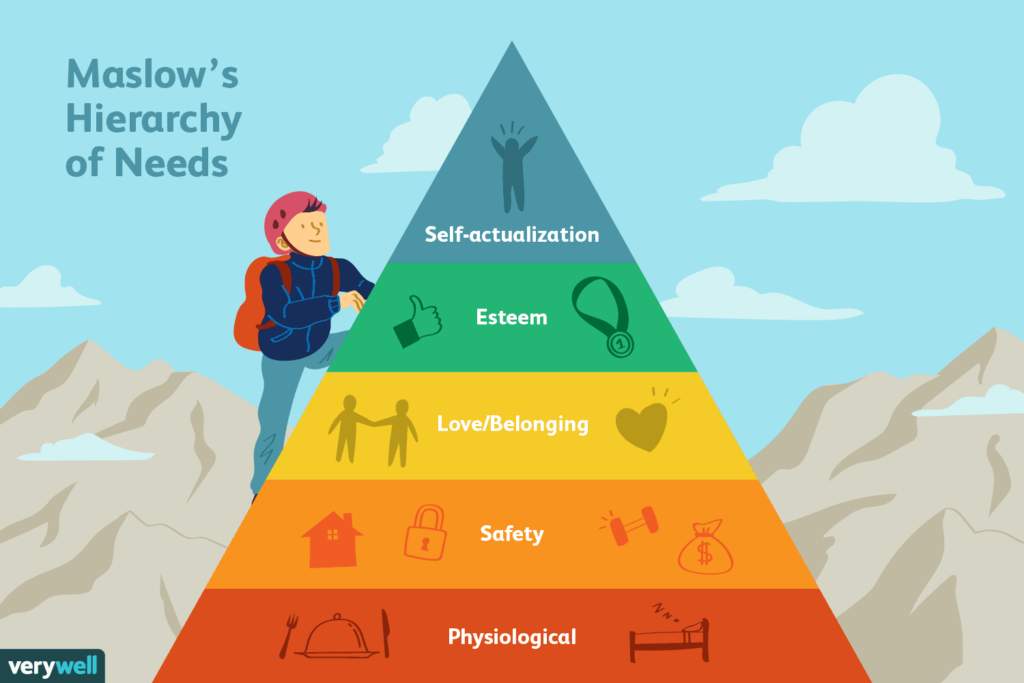Millennials (Gen Y) and Gen Zs are now the new workforce, but companies, management, and recruiting practices have inherited many of the bad habits from the industrial revolution.
To change our organizations in order to welcome the talent of the future and evolve with changing markets, we first have to understand some traits common in the rising generations.
In the recent Masters of Scale with Reid Hoffman – The Millennial Episode, Reid and Brit discuss some common traits and mindset present in Millennials. Below is a summary and some personal observations.
The term Millennial is used a lot in the episode, but I believe the traits translate well for Gen Zs and future generations as well:
More and more people are growing up wanting for less
Really? With consumerism at an all-time high, how can this be true? I’m not referring to material wants, I’m referring to necessities. With each growing generation, we see a trend towards improved lifestyles – fewer people going without food, higher rates of education, lower rates of homelessness.
As we move up Maslow’s hierarchy of needs, you can see that Esteem and Self Actualization are the last 2 items which we strive for fulfilment once the conditions below are met.
This is perhaps why we see a growing trend in the fields of personal development, entrepreneurship, and freelancing.
As most of the basic necessities are taken care of, we the younger generation seek greater fulfillment and purpose in the work that we do.
Chin Hing Chang, Founder @ ClassyNarwhal
A common complaint I get about the younger generations is that we are not loyal and seen as job hoppers. Deloitte did a study where they surveyed over 10,000 Millennials and found that 43% plan on leaving their jobs within 2 years while only 28% plan to stay beyond 5 years.
My personal view is that this is happening because the younger generation, in our journey to seek fulfilment and purpose in our careers, fails to first focus on understanding and discovering ourselves. As a result, we default to trying many different things to see what appeals the most, which leads to job-hopping behaviour.
Passion in the workplace isn’t something that can be bought. All the backrubs and bento boxes in the world aren’t going to help your employees feel fulfilled if their goals are fundamentally different to yours. Instilling true passion is about aligning goals. And while it is true that this will encourage loyalty, or retention, or whatever you want to call it, you have to realize that goals change. The alignments can drift apart. Until they are following separate courses. This is certainly not unique to millennials.
Reid Hoffman, Founder @ LinkedIn
Reid makes a good point about goals changing and alignments drifting apart. Indeed, goals are typically short term and malleable to change, whilst mission and core values tend to be more enduring over time.
If companies take a mission-first approach to recruiting and focus on helping employees discover themselves, they should be able to foster a more loyal company culture by attracting talent with the right values alignment.
The younger generation is full of choice
Yes, I just said we grew up wanting for less, but we also grew up with a plethora of choices. It used to be that parents would raise their children to be doctors, to be lawyers. We’ve shifted from a “Love what you do” approach to a “Do what you love” approach.
With that available to us, the weight of our choices brings forward a strong sense of uncertainty about our futures.
Today identity is a process of self-definition. That is the biggest shift that has occurred in terms of how we see ourselves. I define who I am. And so I have to constantly be in a process of evaluation. Am I “this” enough, am I “that” enough, am I ambitious enough? We live in a constant process of evaluation, it’s debilitating.
Esther Peral, Psychotherapist, Relationship Philosopher, Speaker, Author and Host of Where Should We Begin? and How’s Work?
How do we see this reflected in the workplace?
- Build strong feedback loops that help us evaluate the results of our choices and define our achievements.
- Growing up in a world that’s rapidly and constantly evolving, the future generation is extremely adaptable to change.
As employees and customers, they will tend to push for change, both personal and organizational. Like the world around them, they are in a state of constantly becoming.
Reid Hoffman, Founder @ LinkedIn
- Future generations grow more independent and have strong initiative to be self-starters.
- Future generations are extremely ambitious as they push to define their self worth earlier in their personal journey and careers.
- Don’t micromanage, or as they say, don’t give us our Lego sets fully assembled. We like creating and need to go through the journey of making our own mistakes to grow and improve.
Share stories and experience instead of advice: Instead of “You should…”, try “In my experience…”
MightyNetworks
Give us new challenges that we can evolve into, or we’ll end up evolving out of our roles and out of the company.

